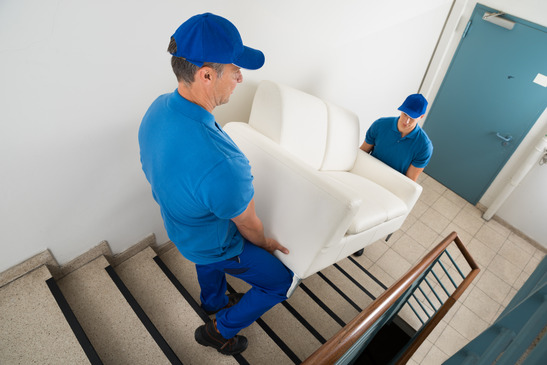Water Damage Restoration Fort Worth | The Dangers of Flood Water and How to Protect Your Home
Every year, natural disasters like hurricanes, floods, and other extreme weather events cause millions of dollars in damage to homes and businesses. One of the most common—and devastating—types of damage is flood water. Whether caused by a river overflowing its banks or a storm surge hitting the coast, flood water can be highly destructive. In this blog post, we’ll discuss the dangers of flood water and how you can protect your home from it.
What is a flood?
A flood is a natural disaster that can occur when groundwater levels rise, and water flows onto land surfaces. Floods can be caused by heavy rains, melting snow, or a dam failure. When flooding occurs, it can damage homes, businesses, and infrastructure. Floodwaters can also contaminate drinking water and create health hazards. In addition, floods can displace people from their homes and cause loss of life. Floods are a serious threat to communities across the United States, and it is important to be prepared in the event of a flood. There are several steps that people can take to protect themselves from floods, such as stocking up on supplies, having an evacuation plan, and knowing how to turn off utilities.
What causes floods?
Many things cause floods. Heavy rain, melting snow, and even hurricanes can lead to flooding. It doesn’t take much to overflow their banks when the ground is saturated with water, rivers, or lakes. Flash floods can occur after only a few minutes of heavy rain. And gradual floods can take days or weeks to develop. Flooding can happen anywhere it rains, but some areas are more prone to flooding than others. Floodplains near rivers and streams are especially vulnerable. That’s because the land is lower than the surrounding area and is often covered with water during a flood. So when it rains heavily, the water has nowhere to go but onto the floodplain. But even areas that don’t typically experience flooding can be at risk if there is enough rainfall. Urban areas are especially vulnerable to flooding because of all the concrete and pavement. This hard surface doesn’t allow water to seep into the ground, so it quickly builds up and flows into streets and low-lying areas. Flooding can cause a lot of damage to homes, businesses, and infrastructure. It can also lead to injuries and even deaths. That’s why it’s important to be aware of the risks and take steps to protect yourself and your property from flooding.
What are the dangers of flood water?
Flooding is one of the most destructive natural disasters that can occur. In just a matter of minutes, flood waters can cause extensive damage to homes, businesses, and infrastructure. And while floods can occur anywhere in the world, certain areas are more prone to them than others. As a result, it’s important to be aware of the dangers of flood water.
Some of the most immediate dangers posed by flood water are physical injuries. Flood waters can contain all sorts of debris, from sharp objects like glass and metal to harmful chemicals and sewage. This can lead to serious cuts, scrapes, infections, and diseases. Flood waters can also pose a danger to children, who may not be aware of the potential hazards.
Another danger posed by flood water is property damage. Flood waters can quickly destroy carpeting, furniture, appliances, and other personal belongings. Even if flood waters don’t cause direct harm, they can leave behind mold and mildew that can cause long-term damage to your home. In addition, flood waters can cause serious damage to roads, bridges, and other critical infrastructure.
Finally, floods can have a devastating impact on your mental health. Dealing with the aftermath of a flood can lead to anxiety and depression. If you’ve been affected by a flood, seeking professional help is important if you struggle to cope.
While flood water’s dangers are significant, you can take steps to protect yourself and your property. If you live in an area prone to floods, ensure an emergency plan is in place. And if a flood does occur, don’t try to brave the waters – call for help instead. By being aware of the dangers of flood water, you can help keep yourself safe during this potentially devastating natural disaster.
How can I protect my home from flood damage?
Flooding is a serious problem that can occur anywhere in the world. If you live in an area that is prone to flooding, it is important to take steps to protect your home from potential damage. Here are a few tips to help prepare your home for floods:
Elevate your home
Elevating your home is one of the best ways to protect it from floods. Raising your home will reduce the risk of water damage and allow your home to withstand high water levels. There are a few different ways to elevate your home. You can elevate your home by elevating your home’s foundation. Elevate your home’s foundation by raising it above the floodplain. You can also Elevate your home by elevating the ground around your home. Elevating the ground around your home will help to prevent water from pooling around your home and will also help to improve drainage. If you elevate your home, you will take an important step to protect it from floods.

Install floodgates or barriers
. One of the most effective ways to do this is to install floodgates or barriers. These devices can help block water from entering your home and redirect water flow away from vulnerable areas. Another important consideration is to make sure that your insurance policy covers flooding. This will ensure that you can recoup some of the costs associated with repairs. By taking these precautions, you can help to minimize the damage caused by floods.
Move valuable items to higher ground
Move valuable items to higher ground, if possible, and secure items that cannot be moved. Sandbags can be used to help prevent water from entering your home. Be sure to seal any gaps or cracks around doors and windows. Turn off any gas or electricity before the floodwaters arrive. If you have time, disconnect any appliances that floodwaters could damage. Once the floodwaters have receded, inspect your home for damage and begin the cleanup process as soon as possible. Mold and mildew can start to overgrow, so be sure to dry out your home as much as possible. If you have flood insurance, now is the time to file a claim. Take photos of the damage and keep any receipts for repairs. Taking these steps can help minimize the damage caused by floods.

Stay informed
Stay informed about the risk of floods in your area, and sign up for local alerts. When a flood is expected, take steps to protect your home. Start by bringing loose items from outside, such as lawn furniture, grills, and toys. Move valuable belongings and critical documents to a higher level. Be sure to disconnect any electronics and unplug appliances. To help prevent water from coming in through the windows, doors, and vents, use sandbags or plywood to seal off openings. Finally, turn off the power at the main breaker if you think flooding is imminent. Taking these steps ahead of time can help minimize damage to your home in a flood.
By following these tips, you can help prepare your home for floods and reduce the risk of damage to your property.
What should I do if my home is flooded?
If your home is flooded, the first thing you should do is call your insurance company. You will need a copy of your policy handy, as well as any photos or videos of the damage. Once you have reported the claim, your insurance company will send an adjuster to assess the damage and determine the extent of your coverage. In the meantime, you should start cleaning up and drying out your home. This may involve removing soaked carpets and furniture and any damaged drywall or insulation. Mold and mildew can grow within 24-48 hours, so it is important to act quickly. Once your home is dry, you can begin making repairs. If you have flood insurance, your policy will likely cover the cost of some or all of the repairs. If you don’t have flood insurance, you can get financial assistance from the government or other organizations. Either way, it’s important to get started on repairs as soon as possible to prevent further damage to your home.
If, despite all your precautions, a flood occurs on your property, don’t hesitate to reach out for professional help immediately. Time is of the essence when restoring damaged property due to flooding; the longer the water is untreated, the more severe the damage will become due to mold growth or corrosion caused by contaminants in the water. Professional restoration services such as those offered by Water Damage Restoration Fort Worth specialize in quickly removing excess moisture from flooded properties using powerful equipment such as dehumidifiers and industrial-grade fans while disinfecting affected areas with high-powered cleaners that kill bacteria and fungi at their source before they have a chance to spread further throughout your home.
Floods pose many dangers, both immediate and long-term when they affect residential properties; however, taking proactive steps now—like checking with local authorities about potential sources of flooding near your area—can help protect your home against future disasters while investing in professional restoration services if necessary will ensure any existing damage gets taken care of quickly so that life can get back to normal sooner rather than later! With these tips in mind, rest assured that you’ll be prepared no matter what Mother Nature throws at us next season!
As you can see, water damage restoration is a big job that should be left to professionals. If you’re in the Fort Worth area and need water damage restoration services, please don’t hesitate to call us at (817) 502-9355. We’ll be happy to help you get your home back to normal as quickly as possible.
Things To Do In Forth Worth TX
Forth Worth TX News
